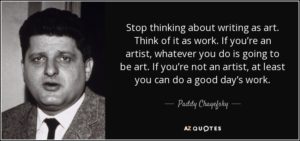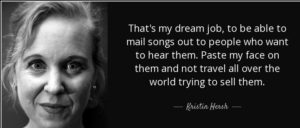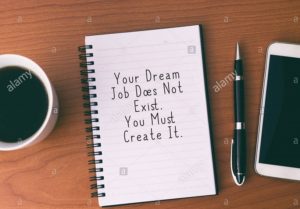
How your resume can stop you from landing on your dream job?
Landing on your dream job is quite an easy trick. Understanding of how the recruitment arena works will ensure the candidate is falling on his dream job.

Many people often wonder why they never hear anything back after they attended an interview or send their job application to recruiters. If you’re fortunate, you might have a preliminary email exchange with a hiring manager and then never hear from them again. It’s a depressing experience, one which also adds a shadow on the reputation of the hiring company. So how does it happen? Is it because of you, because of them, or is it just something every candidate must prepare for in the hiring process?
If you are also one who is struggling to get interviews and landing on your dream job, your resume may be the culprit.
The competition for most jobs is intense, and recruiters are overwhelmed by a large number of resumes they receive for job openings. If your resume does not shine, there are chances that it will get passed over.
Want to a few reasons why you do not hear back after applying for a job? In this article, we have covered with five suggestions for ways to avoid the Resume Black Hole and how to get landing on your dream job.

Five suggestions to avoid the Resume Black Hole
- No impact
You have about 20 seconds to seize your readers’ attention and hook them into reading more. It is common for hiring managers to look through several hundred resumes for just one job posting. With the odds stacked up against you, your resume must create impact and make an excellent first impression.
An employer wants to quickly figure out why they should invite you for an interview. If you are not providing this information clearly and compellingly, they will simply move on the next resume.
- Poor layout
Having a strong visual layout and appearance on your resume is just as powerful as the content. So be sure to use an appropriate format with distinct sections that allow the reader to find the information they are seeking quickly. A typical resume format will include the sections given below:
- Summary of Experience or Profile
- Significant Accomplishments
- Work Experience
- Education
- Training or Certifications
- Size matters
There is no set rule about the size of your resume, but conventional wisdom suggests that if you are a fresher or entry-level job seeker, you should have a one-page resume. If you have been working for over five years, then a two-page resume will probably make sense. You should make sure to include as much relevant information to convey your expertise in a way that demonstrates your fit for the job position.
Keep in mind that your resume isn’t your life story; if you find yourself going past page three; you should look for ways to pare it down.

Remember, you only get about 20 seconds to make your impression.
- Lack of accomplishments
The accomplishments section on your resume is your chance to shine and connect with the recruiter. Nowadays, organisations are looking for the best of the best. So, this section will give them a clear picture of why should you be the one they hire. Many candidates have a difficult time pointing to significant achievements, so here are some questions to ask you.
- What are the problems have you solved?
- What are the policies or procedures have you devised?
- Have you been chosen to train other employees?
- What have you changed or improved anything?
- Have you exceeded your goals?
- Have you won any awards?
- Have you received appreciation from management or peers?
If you mention these points in your resume, you will stand out and will get chosen by the employers easily.
- Poor Grammar, typos and mistakes
Over half of all resumes contain at least one error (!).
When hiring managers are looking to screen out resumes, an error or typo can make all the difference. The impression that errors in resumes make is that you are a careless person and do not possess the attention to detail required in many positions.
Be sure to read your resume numerous times, run it through a spell checker and then have at the minimum two people read it over as well. It is also wise to print out a copy of your resume as you may pick out errors or typos that you may have missed while reading it on your computer screen.
Having a subpar resume can keep you away from getting the interview. So, get the format and the content right. Know what to include and what not to include. Don’t let a sucky resume stand between you landing on your dream job.

Reach us for Hiring the best candidates with the leading Recruitment consultancy at Hand Phone: +91 7795547089 or Email us at team@bssrecruit.com.




